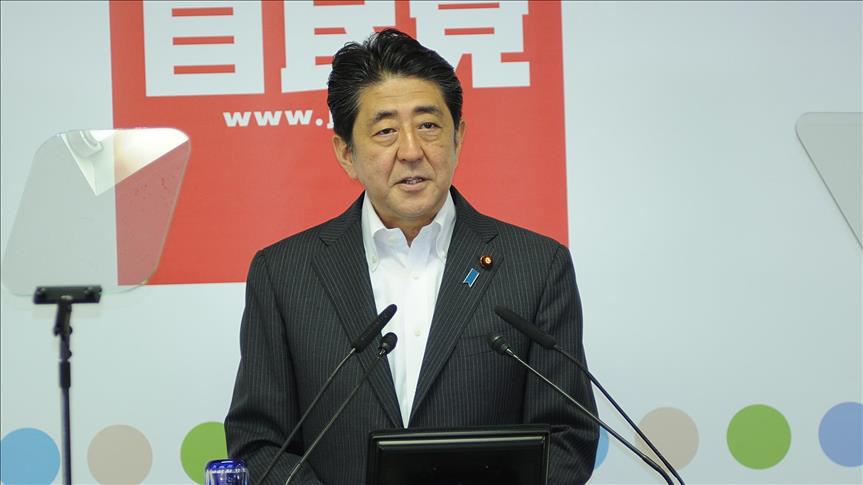An election in the wind in Japan
PM Shinzo Abe has shown a penchant for holding early elections, and has been rewarded by them with increasing majorities
 Shinzo Abe, Japan's Prime Minister and President of the Liberal Democratic Party (LDP) ( David Mareuil - Anadolu Agency )
Shinzo Abe, Japan's Prime Minister and President of the Liberal Democratic Party (LDP) ( David Mareuil - Anadolu Agency )
Tokyo
By Todd Crowell
TOKYO
Is Japanese Prime Minister Shinzo Abe thinking of holding a snap general election soon after the New Year? Certainly there is plenty of talk of an election and the need to begin preparing for it.
Toshihiro Nikai, secretary-general of the ruling Liberal Democratic Party (LDP), said earlier this week, “it would be appropriate to say that the wind for a general election has started to blow.”
Renho Murata, leader of the opposition Democratic Party (DP), also stressed the need to “always be ready”.
“It [a general election] could happen at any time,” according to Natsumo Yamaguchi, leader of the Komeito Party that is in a political coalition with the LDP.
Abe is under no pressure to call an election for the lower chamber of Japan’s bicameral parliament. The current parliament’s term runs for more than two years, to December 2018, and he has a super majority in both houses.
Of course, Abe has shown a penchant for holding early elections, and has been rewarded by them with increasing majorities.
His first election was in 2012, where he ousted the DP government. He called another in 2015 with equally positive results.
If he scheduled an election for January, as is rumored, it would come only six months after the last national election for the upper house of parliament, raising some concerns about voter fatigue, not to mention a drain on the treasury since any national election costs around half a billion dollars to run.
Abe might hope that the current extraordinary session of the legislature will finally ratify the Trans Pacific Partnership, a regional trade deal he sees as being critical to improving the economy (though unpopular with certain LDP constituencies, such as farmers).
He would like to top it off with a big foreign policy success when he hosts a visit by Russia’s President Vladimir Putin in December.
It would be even more successful if the two counties could reach agreement on disputed islands north of Hokkaido.
The Japanese premier has a rather long list of things he would like to accomplish on this and other fronts, including an accounting for Japanese nationals kidnapped by North Korea in the 1970s. (A negotiating session was concluded with the North recently in China.)
But he may feel he is running out of time.
Currently, he is in the middle of his second term as president of the ruling party, which is a perquisite for becoming, or staying, prime minister in Japan. The term expires in September 2018.
So, in addition to the talk of holding another snap election in a few months, there is the question of Abe running for a third term.
Currently, he is disqualified by party rules from running for another term -- unless he can persuade a party congress to change them.
He’s looking to his legacy, but he still needs time.
The issue closest to his heart, amending the constitution, probably cannot be accomplished by the end of the current parliament, despite Abe having super majorities in both chambers.
It will take time to develop a consensus around any specific amendments. Even those members who favor a change my not vote to enact the LDP’s wish list.
And once that is accomplished, it will take time to organize an unprecedented national referendum.
If Abe calls a general election and persuades his party colleagues to let him have a third term, it would extend the life of parliament until 2021 and his own premiership to 2021, allowing him, among other things, to preside over the 2020 Tokyo Olympic Games.
Abe ran without opposition for his second term of office, but that doesn’t mean he can do it again.
There are prominent LDP members who think they have a chance. They include Shigeru Ishiba, who declined to serve in Abe’s new cabinet in order to leave him free to run for higher office.
As secretary-general Nikai recently told first-term members worried about keeping their seats in any new election: “It is important to imagine that you are always on the battlefield."
Anadolu Agency website contains only a portion of the news stories offered to subscribers in the AA News Broadcasting System (HAS), and in summarized form. Please contact us for subscription options.







